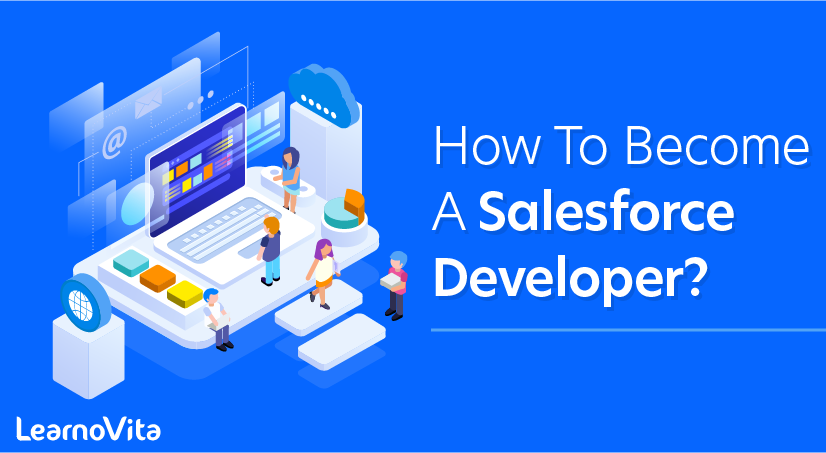
How to become a Salesforce Developer?
Last updated on 04th Oct 2020, Artciles, Blog
What is the Salesforce platform?
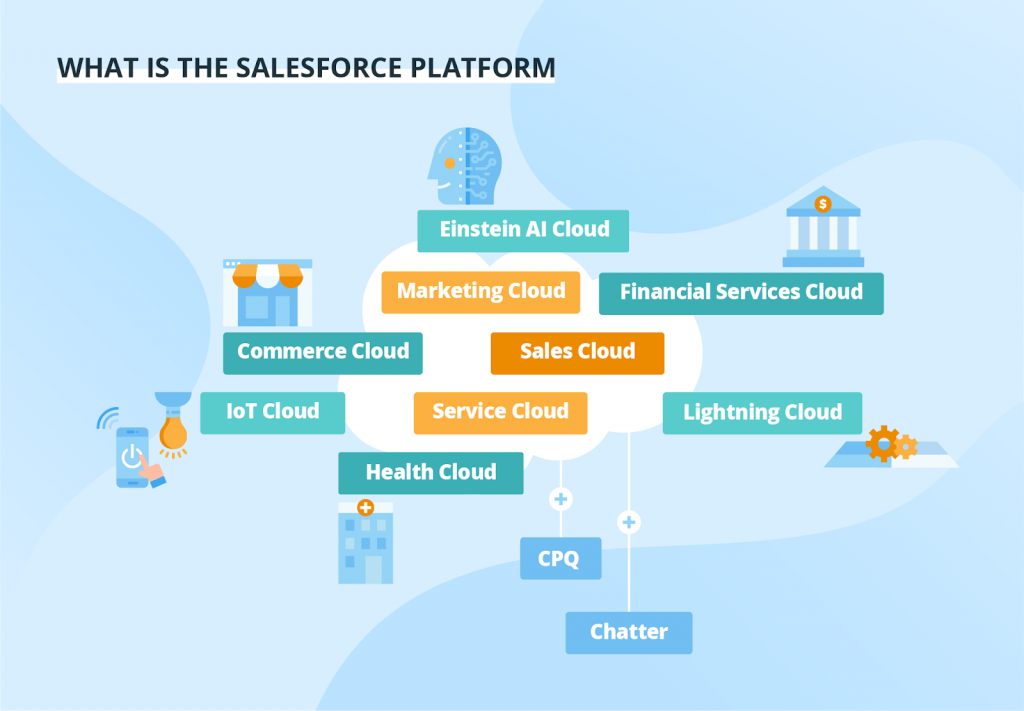
Subscribe For Free Demo
Error: Contact form not found.
Salesforce is a cloud platform for managing sales, customer service, and marketing. The key products for these purposes are Sales Cloud, Service Cloud and Marketing Cloud. The list of the highly demanded products for business also includes Commerce Cloud (for ecommerce), Financial Services Cloud (for financial organizations), and Health Cloud (for healthcare organizations). To enrich their products, SFDC (which stands for Salesforce.com Inc.) offers additional components, for example, CPQ & Billing used for automatic price quote generation and invoicing.
In 2007, SFDC launched Force.com, the PaaS product for developers to create and run apps in the Salesforce infrastructure. In 2018, Force.com was renamed into Lightning Platform, but developers still use the original name sometimes.
SFDC regularly updates the services and enriches the offering with new products. One of such products is Einstein AI helping businesses to enhance their CRM with predictive analytics for such purposes as identifying the most promising leads (potential clients) for further cooperation.
Another ambitious product by SFDC is IoT Cloud. This platform allows collecting, processing and real-time managing data from the devices integrated into an IoT system. For example, in retail, IoT Cloud can aggregate the data from sensors attached to the goods to track their transportation and storage conditions.
Job duties of Salesforce developers
There are two ways to adapt Salesforce functionality to particular business needs: configuration and customization. Developers are mainly involved in Salesforce customization, but they can also perform configuration.
During Salesforce configuration, CRM functionality is tuned via the user interface with no coding involved. This way, one can create tables, objects, fields, build relationships between them, set rules for automating linear work processes. For configuration, businesses usually employ a Salesforce administrator.
Salesforce customization is needed when point-and-click tools available in Salesforce are not enough to automate particular business needs. Salesforce customization examples include:
- Automating complex non-linear business processes.
- Integrating Salesforce with other systems (ERP, company website, social media, etc.).
- Creating custom reports and dashboards.
- Adding Einstein AI capabilities to CRM, etc.
Apart from customization and configuration, Salesforce developers build custom applications for Salesforce (IT product companies can add such applications to Salesforce’s marketplace named AppExchange).
Basic aspects of Salesforce development
Back-end development
For server-side development, Salesforce app developers use Apex, a strongly typed object-oriented programming language with syntax similar to Java. Apex code is stored in the format of classes and triggers. Salesforce also has its own data management language SOQL, which is similar to SQL.
The Salesforce platform has some peculiarities that developers need to take into account. First, to deploy Apex code, its coverage by unit tests should be 75% at least. Second, the platform has limits for developers (Governor Limits) on performing certain operations. For example, it’s impossible to execute more than 100 synchronous SOQL queries in one transaction.
Front-end development
User interfaces in Salesforce can be created using the Visualforce or Lightning frameworks. Visualforce is an older framework, comprising a tag-based markup language and a set of controllers. Lightning, on the other hand, is a modern framework that allows creating more interactive user interfaces. The framework consists of Aura Components, a Salesforce proprietary programming model, and Lightning Web Components, a JavaScript-based alternative of Aura.
How to become a Salesforce developer?
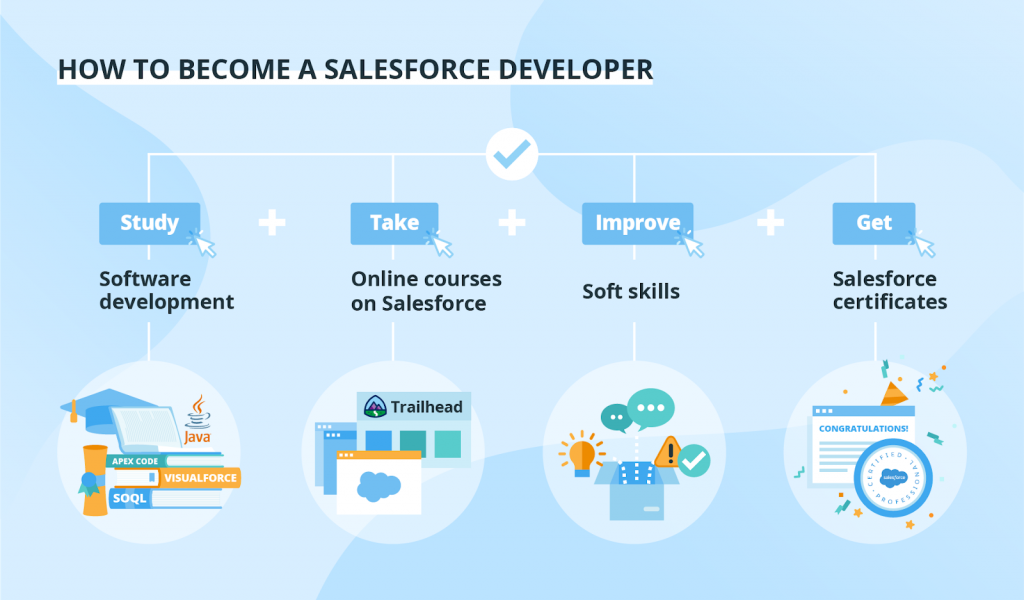
Education
To obtain the required skills, a Salesforce developer should first of all have education in software development. One can obtain a bachelor’s degree in software engineering, computer science, mathematics or related fields. Then, a Salesforce developer needs to gain Salesforce-specific knowledge, for example, with online courses.
There is a variety of online courses and tutorials to learn the basic and advanced aspects of Salesforce development. The majority of them are fee-based. However, Udacity offers a free introductory Salesforce development course, and For learning purposes, SFDC offers Trailhead, which is a free platform with courses combining theory and practice of Salesforce development. Learning starts with the Developer Beginner module, which contains basic information about Salesforce development.
Apart from the technical skills, the requirements for Salesforce development positions can include Salesforce certification. To obtain a certificate, a candidate takes a fee-based test. There are 5 types of certificates, and the certificate should be periodically confirmed (according to the Salesforce releases) by completing tasks by Trailhead.
Salesforce developer vs Java developer
Due to the syntax similarities between Java and Apex, Salesforce is often chosen by Java developers. The core benefits they pursue are new job opportunities worldwide (as soon as Salesforce CRM is widely used around the globe), increased salary and just a refreshing change. At the same time, some developers claim that being a Salesforce developer restricts one’s job options while Java development allows choosing versatile projects in the domains that differ from CRM.
The career path of a Salesforce developer
A Salesforce developer’s career ladder consists of three levels: junior, middle and senior. A senior Salesforce developer can become a Salesforce architect or a Salesforce consultant.
A Salesforce architect is the highest point of the Salesforce developer’s technical growth. The architect designs an architectural model of Salesforce CRM and custom applications according to a client’s business needs. This position requires a solid Salesforce development background and a profound knowledge of all Salesforce products and development tools.
A Salesforce consultant is an intermediary between a customer and a technical team. The consultant analyses a client’s business needs and offers the most suitable Salesforce means to address them. For that, it’s vital to distinguish the cases when Salesforce customization is really required and when it’s enough to go with configuration.
3 reasons why you may like Salesforce development
- You don’t like to develop from scratch
Lightning Platform has many ready-made components for development, which significantly simplifies a developer’s job.
- You like to dive into a customer’s business
Salesforce development requires exploring a customer’s business processes. Moreover, understanding a customer’s business will be a part of your job duties and will influence your career growth.
- You like both back-end and front-end development
Salesforce app developers work both on the server side and create user interfaces.
Do you aspire to become a Salesforce Developer?
Are you stuck on what steps you should take? I have taught Salesforce in a number of places: on my youtube channel (Salesforce Chef), at Montgomery College (the largest community college in Maryland), at a Native American reservation in Oregon, and also to colleagues at Accounting Seed.
Based on my extensive teaching and development experience here are the 8 steps to getting your first job as a Salesforce Developer:
1. Be a Strong Salesforce Admin
Cement your Salesforce Admin knowledge! I recommend spending 3 months to study for and pass the below 5 certifications.
- Salesforce Certified Administrator
- Salesforce Certified Advanced Administrator
- Salesforce Certified App Builder
- Sales Cloud Consultant
- Service Cloud Consultant
There are tonnes of resources and testimonials on Youtube and Google that you can leverage.
2. Make Salesforce Personal → Run Your life on Salesforce
Navigating and customizing your Salesforce org should become as natural and easy as navigating and customizing your iPhone’s settings. To become comfortable with Salesforce, use Salesforce for your personal needs. Is there something specific you can use Salesforce for?
Could you use Salesforce to keep track of your job applications? Each job application is an Opportunity that you are trying to close. The company you are applying for is an Account and the people at the company that you are interacting with are Contacts.
How about also tracking your visits to your doctor/mechanic as an Activity task? If you want to take it a step further- can you use workflows, process builders, triggers to automate something (i.e following up on an interview)?
The more features of Salesforce you use the more you will appreciate Salesforce and easier it would be for you to get a job. You would be learning Salesforce even without realizing it.
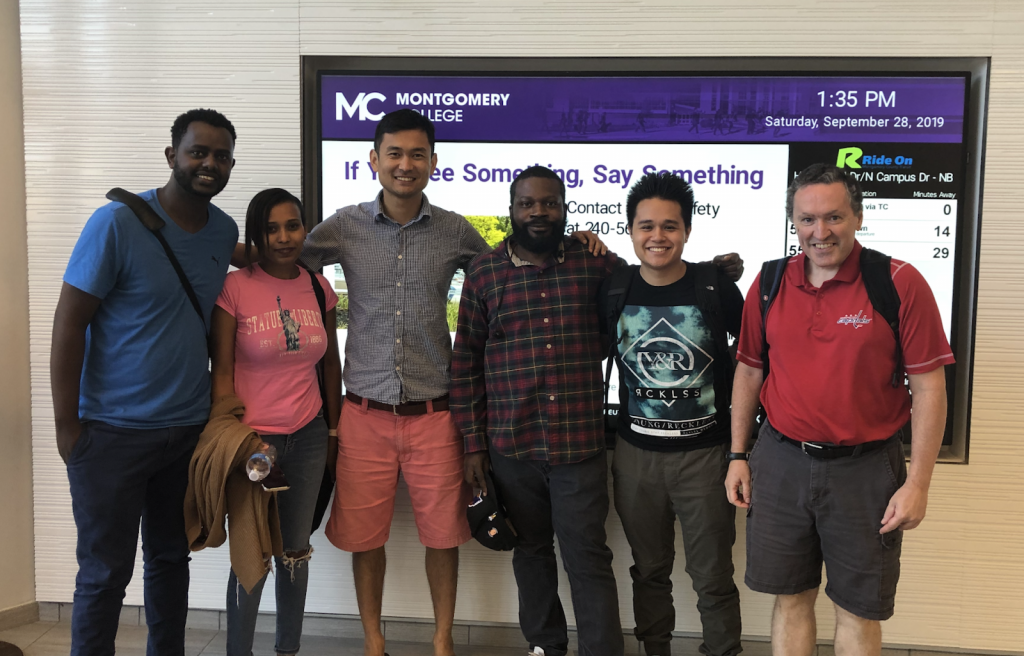
3. Pass the Platform Developer (PDI) Certification
It is essential for you to pass the Platform Developer Certification because it will help to make up for any lack in your Salesforce Development experience. Although some of the material on the exam is out of date (as it primarily focuses on Visualforce) you should still pass this Certification – plus, it will demonstrate your tenacity to learn.
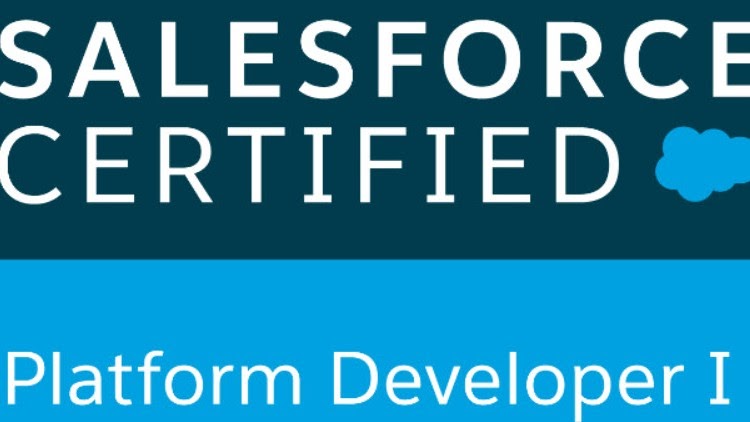
4. Pass the Scrum Master Certification
When you join a project you should know the key terms used in an agile project such as backlog, sprint, stand up meetings. You can ace this certification from Scrum.org after 2 days of studying. Also, the exam is open book. This certification should decorate your resume.
5. Join Your Local Salesforce Developer Community Group
You might feel intimidated by other more experienced Developers, but don’t worry. Since the Salesforce Trailblazer Community helps each other you will be inspired and guided by fellow Developers.
Start building a local friend network of Salesforce professionals by attending your first Trailblazer Community Group. Learn about their Salesforce journey: how did they find their first job? How did they learn Apex? Also, did you know that recruiters typically come to the Developer meetups? So this is an opportunity to get a feel for local opportunities and get your questions answered and recruited!
6. Get on Salesforce StackExchange
The Salesforce StackExchange is the best resource to crowdsource the community’s help on your specific Developer questions, even if, initially, the questions discussed on the forum will be far beyond your expertise.
Still, bookmark the Salesforce StackExchange and get in the habit of logging in once a week, seeking an opportunity to ask a good question (not an easy task but you can do it. I did it!) and getting to 100 reputation points.

7. Find a Technical Mentor
It can be a challenge to get used to writing code, and easy to feel stuck and overwhelmed if you don’t come from an IT or coding background. That was the case with me! A lot of the coding concepts might not make sense (wait, what is an Exception? If it is an error why is it called an Exception? Is not being Exceptional supposed to be a good thing?!).
It all will start clicking only after 6 months. The key is to survive these initial 6 months until you get used to Apex, LWCs and Salesforce in general. Keep up your Salesforce momentum! An aspiring Developer should find a technical mentor to overcome obstacles. This person will explain the mistakes in your code, how to achieve higher and better code coverage or how to debug your code.
How do you find such a mentor? You could look in your local Salesforce Community (point #5), or you could look on Upwork. If you are interested in seeing how to do this step-by-step check out my Youtube video on this topic.
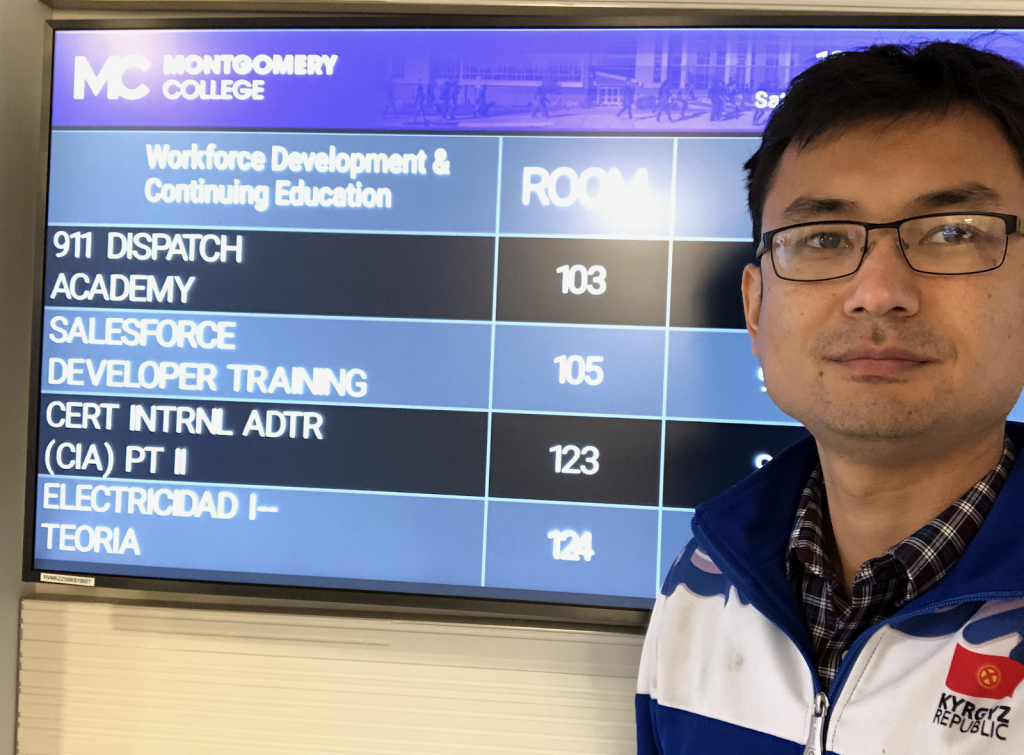
8. Apply to Jobs & Track your Mistakes
Have you been to job interviews? In your personal Salesforce org keep track of all the interviews you have had; for each interview, created an Opportunity record, and in the Activity related list, record all the questions that you were asked, what mistakes you think you made and how you could do better. If you’re looking for help with the interview, then check out of the top interview questions and answers!
The beautiful thing with coding interviews is that it is an objective process; therefore, you can tell what your weaknesses/gaps are, so you can work on them (using Trailhead, community friends or Googling), and do better on your next interview.
You will be surprised how much better you will get pretty quickly. Focus on questions that you answered poorly. Write out the answer for those question and practice it so that you answer that question much better at the next interview. By tracking your mistakes and making incremental improvements you will become a very attractive candidate very fast.
Summary
If you aspire to become a Salesforce Developer, I hope that these 8 steps help you towards getting your first job as a Salesforce Developer.
Are you looking training with Right Jobs?
Contact Us- Salesforce Tutorial
- Salesforce Architecture Tutorial
- Salesforce Developer Certification, Jobs And Salary Trends
- salesforce lightning
- Salesforce Developer Tutorial
Related Articles
Popular Courses
- PMP Certification Training
11025 Learners - Workday Training
12022 Learners - Oracle Hrms Training
11141 Learners
- What is Dimension Reduction? | Know the techniques
- Difference between Data Lake vs Data Warehouse: A Complete Guide For Beginners with Best Practices
- What is Dimension Reduction? | Know the techniques
- What does the Yield keyword do and How to use Yield in python ? [ OverView ]
- Agile Sprint Planning | Everything You Need to Know
